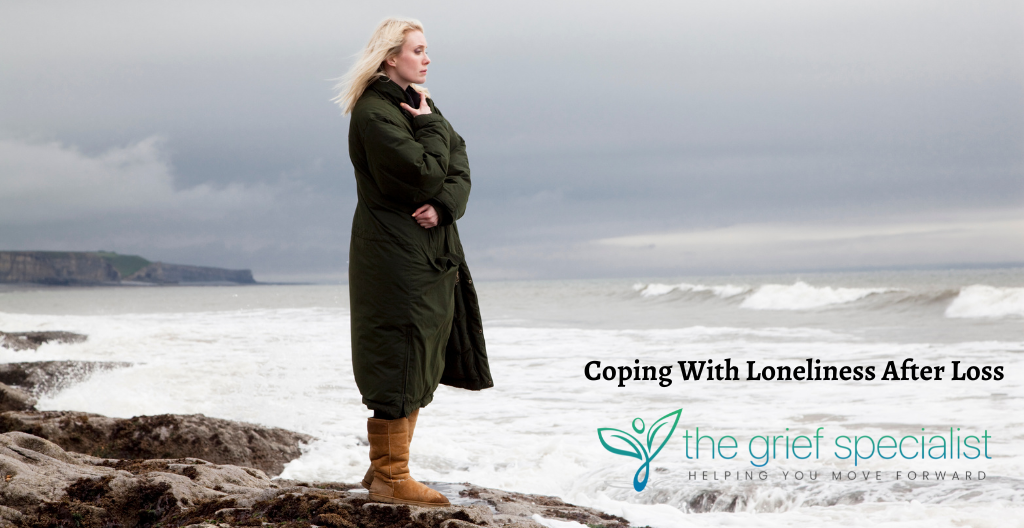The loss of a child is unique but what makes it unique? You might be feeling these things already yet have not been able to put your finger on it. When I work with my clients that have lost a child, they come to me with different challenges than other types of loss: guilt, shame, overwhelm and loneliness. Other things that make the loss of a child unique: possible more intense trauma, social repercussions, memories more difficult to navigate, the time you take to mourn may be longer, and you can be at a greater risk for trauma yourself. In cases of sudden death caused by accident, murder, or suicide, the inability to say goodbye marks the loss as unique. Mothers, traditionally, have been the primary caretakers and feel it is their responsibility to protect their child. They feel they have let their child down by not keeping them safe. Because of the intense bond between mother and son, you might even experience broken heart syndrome; chest pain, caused by stress hormones that stun and damage your heart muscle.
All the above are examples that make child loss unique and makes grief recovery more difficult.
Based on what my clients tell me, the number one challenge mother’s face is loneliness. After the initial wave of care, out of town guests have gone home, other friends and family have returned to work, they are left in a void. The world continues to turn and march forward while theirs seems like it has come to a screeching halt. I remember looking around and asking, “Don’t they know?” “Don’t they know my son died?” I am grieving and EVERYONE should stop what they are doing! I bet you have felt the same way!
And for those who were aware of my loss, no one seemed to understand what I was going through. They would give looks of pity. When we spoke, they tip-toed around the subject of my son. Deep in my heart, I wanted to talk about him. There were a few people in my inner circle that I could talk to, however I felt like I was wearing out my welcome. I was leaning on them more than they could support me.
Child loss can be the elephant in the room where no one wants to speak of your deceased child. They fear that they will cause you to cry and create more pain. Rather than risk hurting you, they may say nothing. That was the worst because you want to talk about your son. Why is it that it is okay to talk about their 84-year-old grandmother that died and unable to talk about a 24-year-old? They both lived. They both died. They both should be recognized, their names spoken, and memories lived.
The uniqueness of child loss can lead to grief loneliness which is turning inward while you deal with your personal pain. It can surface when you are alone or in a crowd. Grief loneliness can also turn up during milestones: certain days of the week, dates of the month, birthdays, anniversaries, and other events. It is in anticipation that mothers look forward to graduation, weddings, and grandkids. It is times such as these that mothers are more likely to wish for their child. You miss the opportunity to share in these special moments. To those who are not grieving, these milestones are simply another day. As a mother, you might expect others to remember those events and when they are not recognized, your feelings might be hurt causing you to turn inward further.
Grief is unique and individual as it gets. Because of this, it is far too easy to isolate yourself from the rest of the world as you do your best to walk your loss journey alone. Even when you are surrounded by other people, it is easy to feel alone. In a culture when independence and do-it-myself attitude prevail, we are taught that seeking help in grief is a sign of weakness. This is a downward spiral in which only leads to more loneliness. You might put on outer appearances that you are fine and that you don’t need any help yet on the inside you are screaming that you simply want someone to listen. Someone to hear you speak about your child, someone to lean on and hug when grief is striking the hardest.
Here are a few signs of grief loneliness. Keep in mind that they are not the same for everyone. Individual circumstances such as age, gender, relationships, mental health status and previous experiences with grief impact your response to loneliness and your ability to move through it.
- Increased social media use. Using social media as a source for support can backfire. I’ve seen it many times. Instead of feeling connected, you may experience great isolation because of too much social media use.
- Persistent need to talk about the fact that you feel alone or isolated.
- Feeling like everything you do is an effort and question why bother.
- Feel that your support has diminished and believe others don’t know how to support you.
- You retreat and deflect attempts from others to connect.
HOW TO WORK THROUGH GRIEF LONELINESS
Accept your current circumstance.
I love a quote from Oprah Winfrey about acceptance. To paraphrase, she noted that “radical acceptance” applies to every challenge in your life. She says that stress comes from wanting something to be different from what it actually is. Once you accept a situation for what it is, then you can make a decision regarding what to do next.
Radical acceptance. I do like the principle. It makes sense in your ever-changing world. Accept what has happened. It is an important step in making a choice with what you have been handed. Choose to process your grief. Live in the moment, and do not try to re-create what cannot be re-created. You have a choice to love life now. You have a new norm. You may be in a dark and heart-wrenching place. You never asked to be in this place, part of this grieving parents’ club. I get it. It is difficult.
Acceptance of your loved one’s death does not mean that you are forgetting them. You are giving yourself permission to understand they are no longer with you. Death of a loved one will change you. You cannot change this fact. You cannot turn back the clock and take back what has happened. How you deal with the grieving process will determine your ability to move forward. Acceptance of death does not mean you are left unscathed. Acceptance does not mean that you are healed. It does not mean you are whole again or that your grief is gone. Acceptance and grief are ongoing; they are a process and a journey.
The real problem is that most people in the midst of their sorrow cannot imagine accepting the loss of their loved one. To do so, they feel, would inadvertently mean that the person was not meaningful to them or that they are not worth the pain and sorrow. To accept is to understand your life has been forever changed because of the loss of your loved one. You will never return to who you were before the loss, yet you will learn to live without your loved one’s presence. Out of this, you morph into a new person.
Allow me to set something straight. Acceptance does not mean forgetting their existence, your love for them, or your relationship. However, not accepting their death will keep you in the past while the rest of the world keeps going. As you grieve, have you felt like the world should stop and grieve with you? Although you may wish this could happen, it will not happen.
When you are able to accept your loss, then you will be open to help and support. Understand you do not have to face your grief alone.
#loneliness
#mentalheatlh
#acceptance
#moveforward
#griefrecovery




